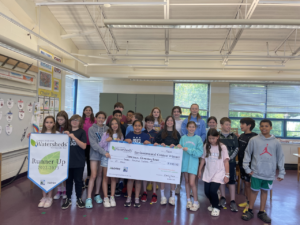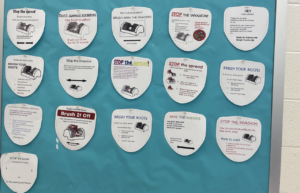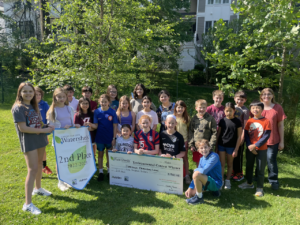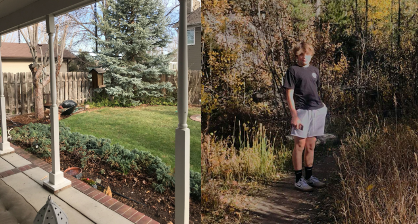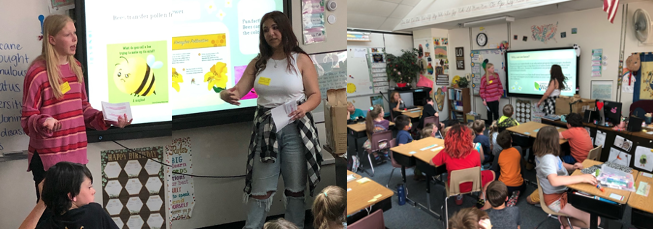2023, Arlington, VA, USA
When fifth grade students at Jamestown Elementary conducted an environmental inventory of Jamestown Elementary and Jamestown Park with the Master Naturalist and Park Steward, they found many invasive plant species. These plant species were not native to the area and may have been spread there by seeds stuck on to visitors’ shoes.
To address this problem, students installed boot brushes close to where the invasive plant species were spreading as well as other key areas. They worked with their art teacher to create signs that would educate others on how to use boot brushes and the impact of invasive species. They planned and stocked up on replacement brushes and signs when future grade students notice that they are needed.
Many students have now changed their habits and use the boot brush regularly to protect the local watershed. They understand the impact of invasive plants and know what to look out for in the future.
SDG: 15: Life on Land
Targets: 15.5, 15.8
